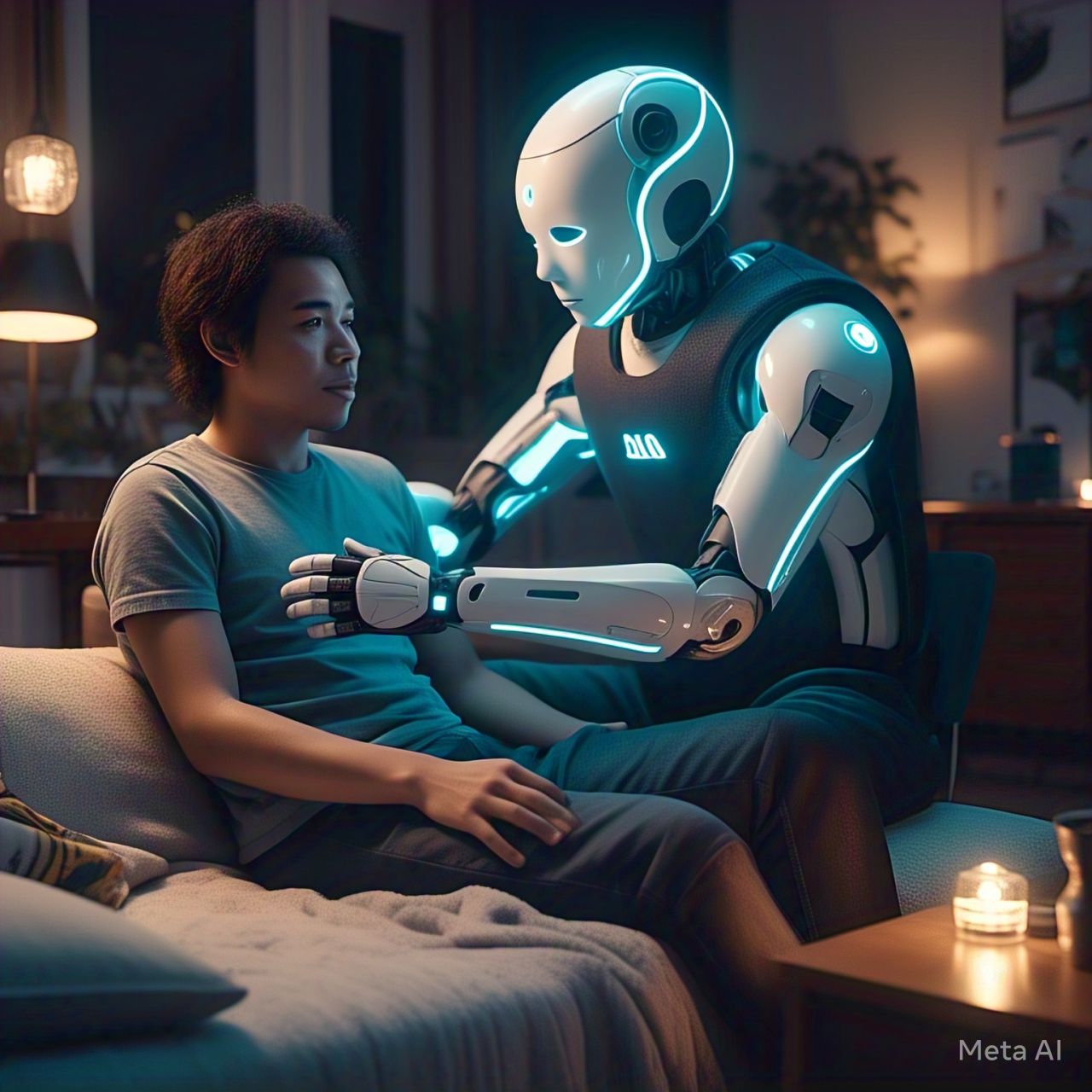Table of Contents
- Introduction
- The Evolution of AI-Powered Companions
- How AI is Transforming Emotional Support
- The Role of AI in Elderly Care
- Enhancing Mental Health Support with AI
- The Ethical Concerns of AI in Emotional Support
- The Future of AI in Emotional and Healthcare Services
- Conclusion
Introduction
In a world that is increasingly connected yet paradoxically isolating, artificial intelligence (AI) has emerged as a powerful tool for providing emotional support and assistance in various settings. AI-powered companionship is revolutionizing the way we interact with technology and how we receive emotional support, particularly in sectors such as mental health and elderly care. But as AI steps into roles traditionally held by human caregivers, significant ethical questions arise. Can AI truly replace human empathy and connection, or does it pose risks to the fundamental fabric of human relationships?
This article explores the role of AI in emotional support and therapy, highlighting the benefits and potential ethical concerns that arise as AI becomes an integral part of human well-being.
The Evolution of AI-Powered Companions
The concept of AI-driven companionship is not new. From early chatbots like ELIZA in the 1960s to today’s highly sophisticated virtual assistants like Apple’s Siri, Amazon’s Alexa, and Google Assistant, AI-powered systems have advanced tremendously. These AI-driven companions now use machine learning, natural language processing (NLP), and deep learning to interact with users in a more human-like and empathetic manner.
Modern AI-powered chatbots and virtual companions can analyze speech, detect emotions, and even provide therapeutic conversations to users suffering from loneliness, anxiety, or depression. Examples include Woebot, an AI-driven chatbot designed for mental health support, and Replika, an AI companion that learns from user interactions to create meaningful conversations.
How AI is Transforming Emotional Support
1. AI as a Mental Health Companion
AI chatbots and virtual therapists are designed to provide emotional support by engaging users in meaningful conversations. For example:
- Woebot uses Cognitive Behavioral Therapy (CBT) techniques to help users manage stress and anxiety through text-based conversations.
- Wysa, another AI-powered chatbot, offers AI-guided mental health support with mindfulness exercises, cognitive behavioral therapy (CBT) techniques, and personalized conversations.
2. AI for Detecting Emotional Distress
AI algorithms can analyze speech, text, and even facial expressions to identify signs of stress, anxiety, or depression. Some AI programs analyze social media posts to detect mental distress and offer support or crisis intervention resources.
3. Chatbots in Counseling Services
AI chatbots are increasingly being used in mental health services to offer real-time, anonymous, and stigma-free support to individuals who may not feel comfortable seeking human help. These bots are not meant to replace human therapists but serve as a bridge for individuals who may need immediate guidance.
The Role of AI in Elderly Care
1. Companion Robots for the Elderly
As populations age worldwide, there is a growing demand for elderly care solutions. AI-powered companion robots such as ElliQ and Paro offer emotional support, companionship, and reminders for medication or appointments.
2. Monitoring and Assistance
AI can help monitor vital signs and detect health anomalies before they become serious medical emergencies. Wearable devices equipped with AI can track heart rates, detect falls, and send alerts to caregivers when necessary.
3. Cognitive Assistance
AI is also proving helpful in cognitive therapy for elderly patients, particularly those with Alzheimer’s and dementia. AI applications can help patients recall memories, recognize loved ones, and manage their daily routines.
AI in Healthcare: A Boon or a Concern?
While AI has the potential to revolutionize healthcare, there are concerns regarding data privacy, trust, and ethical dilemmas.
- Data Privacy Issues: AI systems rely on vast amounts of patient data, raising concerns about security and unauthorized access.
- Lack of Human Touch: While AI can simulate empathy, it cannot replace the warmth of human interaction in emotional support.
- Potential Bias: AI algorithms can be biased based on the data they are trained on, which might lead to discrimination in patient care.
- Accountability: If an AI system makes an incorrect diagnosis or recommendation, determining accountability can be challenging.
AI in Crisis Intervention and Therapy
AI is now being used to detect mental health issues and provide necessary interventions. Here’s how:
- Suicide Prevention
- AI can monitor social media and online behavior to detect signs of suicidal tendencies.
- Facebook’s AI, for instance, scans posts and comments for distress signals and connects users with crisis helplines.
- AI in Therapy and Counseling
- AI chatbots offer support to individuals experiencing depression and anxiety.
- Virtual therapists powered by AI provide CBT-based interventions.
- Emotional Recognition Technology
- AI can analyze facial expressions and speech patterns to determine a person’s emotional state.
- This data can be used to provide personalized emotional support.
Challenges and Ethical Considerations
While AI is revolutionizing emotional support, it also raises ethical concerns:
- Loss of Human Connection: Over-reliance on AI could lead to reduced human interactions, impacting emotional well-being.
- Bias in AI Algorithms: AI systems may inherit biases from training data, leading to unfair or ineffective emotional support.
- Data Privacy Issues: Personal data collected by AI companions must be securely stored and ethically managed.
- Regulatory Gaps: There are no clear regulations on how AI-driven emotional support systems should be monitored.
Conclusion
AI-powered virtual companions are changing how we approach emotional support, mental health, and elderly care. While they offer numerous benefits, including 24/7 availability, personalized interactions, and enhanced safety, they also bring ethical challenges that must be addressed. As AI continues to advance, balancing innovation with ethical considerations will be key to ensuring AI companions enhance, rather than replace, human relationships.
FAQs
1. Can AI replace human therapists?
AI cannot replace human therapists but can complement therapy by providing 24/7 support and immediate guidance.
2. Are AI-powered virtual companions safe?
AI-powered companions are generally safe, but data privacy and security concerns must be addressed.
3. How does AI detect emotions?
AI uses natural language processing and facial recognition to analyze speech and expressions for emotional insights.
4. Can AI help in suicide prevention?
Yes, AI can monitor online activity and detect distress signals to connect individuals with crisis helplines.
5. What is the future of AI in emotional support?
AI will continue to improve in emotional intelligence and personalization, making virtual companions more effective and human-like.





